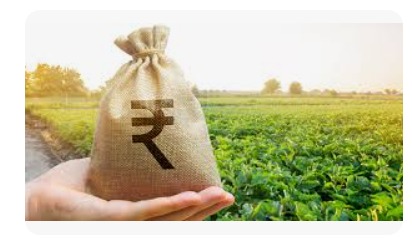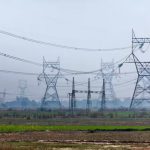Srinagar, July 24: Jammu and Kashmir’s farming sector is facing growing financial strain with total outstanding agricultural loans exceeding Rs 11,700 crore, even as the number of active Kisan Credit Card accounts has surged past 11.13 lakh, according to official data presented in Parliament.Despite the rising credit burden, the Union Government has categorically ruled out any proposal for a nationwide farm loan waiver, saying that its focus remains on strengthening the agricultural credit ecosystem through structural reforms, targeted subsidies, and improved lending frameworks.The data, revealed in a written reply by Minister of State for Finance Pankaj Chaudhary, shows a dual trend in Jammu and Kashmir: while access to credit has expanded under the KCC scheme, the volume of unpaid agricultural debt has also escalated significantly.The Kisan Credit Card scheme, a flagship initiative of the Government of India to facilitate timely and affordable credit for farmers, has witnessed steady uptake in J&K over the last five years. As of March 31, 2025, the total outstanding under KCC loans stood at Rs 7,379 crore, up from Rs 6,518 crore in 2021.The number of active KCC accounts also rose from 10.09 lakh in March 2021 to 11.13 lakh in March 2025, showing deeper penetration into rural credit markets.In March 2022, there were 10.24 lakh KCCs with Rs 6,292 crore outstanding which grew to 10.37 lakh cards and Rs 6,363 crore in dues in 2023. By March 2024, the number touched 10.80 lakh KCCs and Rs 6,974 crore outstanding and the most recent figures (March 2025) place it at 11.13 lakh cards with a loan burden of Rs 7,379 crore.While the increase in KCC coverage indicates progress in credit access, the broader picture of agricultural indebtedness is sobering. Jammu and Kashmir currently has 11.14 lakh agricultural loan accounts with a combined outstanding debt of Rs 11,716.59 crore, positioning the Union Territory 15th among all States and UTs in terms of farm loan burden which puts J&K ahead of several states such as Himachal Pradesh, Jharkhand, and Goa in terms of total dues, despite its relatively modest agricultural land base.Responding to concerns raised by Members of Parliament over the growing debt burden and its potential link to rural distress, the Union Government said that it has no plans to implement a blanket farm loan waiver scheme. Instead, it is focusing on credit-linked interventions and policy-level reforms to ensure sustainable income support for farmers. The government also said that the National Crime Records Bureau does not record specific causes of farmer suicides in its annual ‘Accidental Deaths and Suicides in India’ report, thereby offering no conclusive data on direct correlation between indebtedness and suicides in farming communities.The Centre continues to operate the Modified Interest Subvention Scheme under which short-term crop loans up to Rs 3 lakh through KCCs attract an interest rate of 7% per annum, with a 1.5% subvention to banks. Farmers who repay on time are also eligible for a 3% incentive, effectively bringing down the interest rate to 4%. However, the benefit is restricted strictly to crop loans availed under KCCs. Loans extended for purposes such as farm mechanization, animal husbandry, or land development outside the KCC framework do not qualify for this concession.








